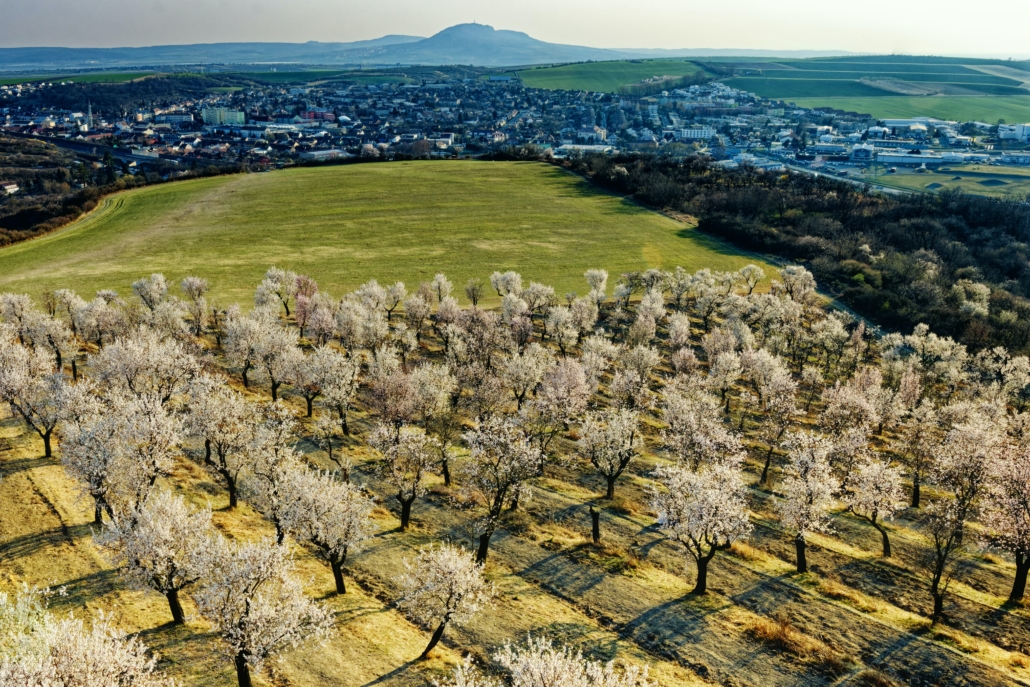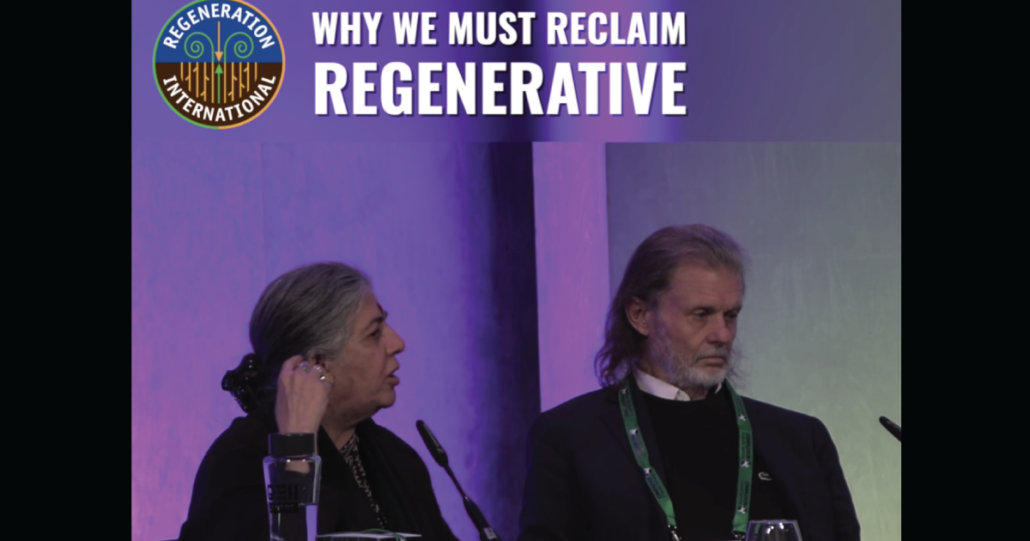South Seas University in Partnership with Regeneration International Present a Five Week Online Course on Regenerative Agriculture
The Future of Agriculture is Regenerative!
Regenerative Agriculture is a holistic land management practice that leverages the power of photosynthesis in plants to balance the carbon cycle and build soil health, crop resilience, and nutrient density.
Regenerative agriculture improves soil health primarily through practices that increase organic matter, which expands biota diversity and biodiversity above and below the soil surface. In turn, this increases water-holding capacity and sequesters carbon at greater depths balancing atmospheric CO2 and improving soil structure to reverse soil loss.
Regenerative Agriculture reverses damage from tillage, agricultural chemicals, salt-based fertilizers, and mining to build a better future. Enrich your knowledge, soil, and income with this unique course by Dr. André Leu, D.Sc., BA Com., Grad Dip Ed.
Send your name, address, email, tel. #, & profession to REGISTER today!

Times: Each lesson is 90 minutes
USA, Thursday, 12.00 Hawaii/Rarotonga, 15.00 US Pacific, 16.00 US Mountain, US Central 17.00, US Eastern 18.00
Asia Pacific, Wednesday, 06.00 Singapore, 08.00 Australia, 10.00 Fiji/New Zealand,
Cost: USD $500 for North & South America, the EU, & elsewhere,
AUD $751 for Australia, Pacific, & Asia
NZD $809 for Cook Islands, Fiji, & NZ
A significantly reduced price will be available to growers or anyone with a limited income who wants to take this course. To apply: Submit your name, address, email, tel #, your position or profession, and why you want to take this course to: LadyCarlaDavis@icloud.com.
To register and secure your place in this uniquely valuable course, submit your:
- Full name as you want it on the certificate
- Email, address, tel # with country code
Details for where to send your full payment will be provided upon Registration.
A certificate will be given to participants upon completion.
Professor:
Dr. André Leu D.Sc., BA Com., Grad Dip Ed.
International Director, Regeneration International
Ambassador, IFOAM – Organics International
Author, Growing Life, Poisoning Our Children, The Myths of Safe Pesticides
andre@regenerationinternational.org
http://regenerationinternational.org
Twitter @Andreleu1
Dr. André Leu is a practicing farmer and the International Director of Regeneration International. This organization promotes food, farming, and land-use systems that regenerate the health of the planet and people. Regeneration International has more than 370 partners in 70 countries and works with numerous agricultural systems such as agroecology, organic, permaculture, ecological agriculture, holistic grazing, biological agriculture, organic agriculture, and agroforestry. André is the Author of Growing Life (2021), Poisoning Our Children (2018), and The Myths of Safe Pesticides (2014). His work appears in television, magazines, universities, institutions, NGOs, and worldwide workshops, including the United Nations. André and his wife, Julia, own and manage an organic tropical fruit farm in Daintree, Australia.
ABOUT
SOUTH SEAS UNIVERSITY (SSU)
Registered with the Cook Islands Government in 1999, SSU is an independent, autonomous degree-granting institution of tertiary education in all areas of academic and professional fields, including but not limited to agriculture, architecture, business, education, engineering, health, IT, performing arts, law, medicine, and teaching.
MISSION & VISION
SSU is dedicated to being a leading institution of higher learning, providing access to affordable education for individuals to develop their creativity and acquire skills in unique, innovative fields of specialization. Investing in human resources and their connection to the environment can better prepare students for our rapidly changing world.
WORK
SSU provides a culturally rich environment for students to think freely and be inspired, creative, and productive. SSU’s quality education also provides opportunities and economic growth that benefit society and its environment.
SSU offers unique programs that reflect the changing demands of business,
different professions, and health care with a better outcome for future generations. Education for Total Consciousness (ETC), established by HH Jagadguru Swami Isa, is implemented in all our programs, which are conducive to good health, environmentally friendly, beautifying, and in harmony with nature.
JAMES COOK SCHOOL of MEDICINE (JCSM) at SOUTH SEAS UNIVERSITY (SSU), is modeled after medical education in the USA.
ABOUT
REGENERATION INTERNATIONAL (RI)
OUR MISSION
To promote, facilitate, and accelerate the global transition to regenerative food, farming and land management for the purpose of restoring climate stability, ending world hunger, and rebuilding deteriorated social, ecological, and economic systems.
OUR VISION
A healthy global ecosystem in which practitioners of regenerative agriculture and land use, in concert with consumers, educators, business leaders, and policymakers, nurture the planet, feed the world, and restore public health, prosperity, and peace on a global scale.
OUR WORK
We work with multiple stakeholders in key regions of the world who are committed to building alternative food and farming systems on a regional or national level. We are currently assisting in the building of numerous Regeneration Alliances, including those in South Africa, India, Mexico, Guatemala, Belize, Canada, and in the Midwest region of the U.S.A.


